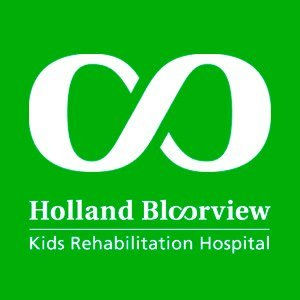预约演示
更新于:2025-12-09

Holland Bloorview Kids Rehabilitation Hospital
更新于:2025-12-09
概览
关联
73
项与 Holland Bloorview Kids Rehabilitation Hospital 相关的临床试验NCT04041713
A Pilot Study of an Antioxidant Cocktail vs. Placebo in the Treatment of Children and Adolescents With Rett Syndrome
This study will examine the potential efficacy and safety of Rett-T for core motor deficits of Rett syndrome, and will explore biological markers of safety and treatment response.
开始日期2025-10-01 |
申办/合作机构 |
NCT06828653
Feasibility RCT Evaluating Digitally and Traditionally Produced Ankle Foot Orthoses for Individuals With Impaired Lower Limb Function
The research is being done to compare two methods of creating AFOs: 1. The traditional method, which involves manually creating a mold from a plaster cast of the client's limb. This is time-consuming and labor-intensive; and 2. The newer method uses digital technology, such as 3D scanning and printing, to design and produce the AFOs, potentially making the process faster and less costly. We want to know whether AFOs made using digital technology can provide the same clinical benefits as those made traditionally.
开始日期2025-09-05 |
NCT06081348
A Randomized Placebo-Controlled Trial of Sertraline vs. Placebo in the Treatment of Anxiety in Children and AdoLescents With NeurodevelopMental Disorders
There are currently no approved medications for the treatment of anxiety in children and youth with neurodevelopmental disorders (NDDs), both common and rare. Sertraline, a selective serotonin reuptake inhibitor, has extensive evidence to support its use in children's and youth with anxiety but not within NDDs. More research is needed to confirm whether or not sertraline could help improve anxiety in children and youth with common and rare neurodevelopmental conditions. This is a pilot study, in which we plan to estimate the effect size of reduction in anxiety of sertraline vs. placebo. across rare and common neurodevelopmental disorders, and determine the best measure(s) to be used as a primary transdiagnostic outcome measure of anxiety, as well as diagnosis specific measures in future, larger-scale clinical trials of anxiety in NDDs.
开始日期2024-09-16 |
申办/合作机构 |
100 项与 Holland Bloorview Kids Rehabilitation Hospital 相关的临床结果
登录后查看更多信息
0 项与 Holland Bloorview Kids Rehabilitation Hospital 相关的专利(医药)
登录后查看更多信息
872
项与 Holland Bloorview Kids Rehabilitation Hospital 相关的文献(医药)2025-11-17·Disability and Rehabilitation-Assistive Technology
Implementation considerations for a telerehabilitation system to improve patients’ adherence to home-based physical exercises: a qualitative study
Article
作者: Marinho-Buzelli, Andresa R. ; Hitzig, Sander L. ; Andrysek, Jan ; Goldstein, Roger ; Norouzi-Ghazbi, Somayeh
Physiotherapists often prescribe home exercise programmes (HEP) to aid in the recovery of their clients with disabilities, which are often poorly adhered to by clients, and can lead to poor clinical outcomes. To improve HEP adherence, our team has proposed a gamification-based telerehabilitation system, which integrates gaming elements (e.g., challenges, rewards, and interactive features) with remote monitoring and guidance from physiotherapists. The purpose of this study was to explore the attitudes, preferences, and experiences of both clients and physiotherapists with gamification-based telerehabilitation solutions as a means to improve clients' adherence to HEP. A qualitative study using semi-structured interviews was conducted with clients who underwent physical therapy within the past 2 years (n = 8), and physiotherapists (n = 8). The interviews explored attitudes, preferences, and/or experiences related to using technology to support clients' and physical therapists' needs. An inductive thematic analysis was used to analyse the data. Four main themes were identified: (1) Virtual and in-person rehabilitation programmes, (2) Adherence to HEP, (3) Users' preferences towards the technology, and (4) Technology consideration for HEP application. The findings from clients and physiotherapists highlight important design and implementation considerations for a remote gamification system aiming to improve adherence to HEP.
2025-11-06·DISABILITY AND REHABILITATION
Adapting and providing a virtual psychosocial intervention
, iSibWorks
, for siblings of youth with disabilities, a qualitative acceptability study
Article
作者: Elkader, Alex ; Al-Hakeem, Hiba ; Desrocher, Mary E. ; Hooper, Marie ; Casola, Shona ; Scratch, Shannon E.
PURPOSE:
The objectives included: (1) Adapt the SibWorks group intervention for use on a virtual platform with siblings; and (2) Assess the acceptability of the adapted intervention, iSibWorks.
MATERIALS AND METHODS:
Participants were youth aged 8 to 12 years who had a sibling with a disability, and their caregivers. iSibWorks was implemented with siblings on a weekly basis for six weeks. Sessions were conducted using Zoom for Healthcare and lasted approximately 60 min each. One week after the final session, siblings and their caregivers were invited to participate in separate semi-structured interviews. Qualitative content analysis of interview transcripts was utilized to assess intervention acceptability.
RESULTS:
Adapting SibWorks to iSibWorks was achieved. Three categories were developed based on sibling and caregiver feedback. First, participants shared their satisfaction with the delivery of iSibWorks, reporting enjoyable experiences and valuing its interactive design. Next, participants perceived their involvement in the intervention as beneficial, due to opportunities to connect with others, learn applicable coping strategies, and improve self-esteem and mood. Finally, participants provided suggestions regarding the intervention's future delivery, content, and participation.
CONCLUSIONS:
iSibWorks is an acceptable virtual group intervention for siblings of youth with a disability. Families noted positive experiences and perceived benefits with intervention participation.
2025-11-01·Lancet Child & Adolescent Health
Training, values, and youth outcomes in adolescent and youth engagement in research
Letter
作者: Jarrett, Clementine ; Macarthur, Colin ; Munce, Sarah ; Toulany, Alene
100 项与 Holland Bloorview Kids Rehabilitation Hospital 相关的药物交易
登录后查看更多信息
100 项与 Holland Bloorview Kids Rehabilitation Hospital 相关的转化医学
登录后查看更多信息
组织架构
使用我们的机构树数据加速您的研究。
登录
或

管线布局
2026年02月08日管线快照
无数据报导
登录后保持更新
药物交易
使用我们的药物交易数据加速您的研究。
登录
或

转化医学
使用我们的转化医学数据加速您的研究。
登录
或

营收
使用 Synapse 探索超过 36 万个组织的财务状况。
登录
或

科研基金(NIH)
访问超过 200 万项资助和基金信息,以提升您的研究之旅。
登录
或

投资
深入了解从初创企业到成熟企业的最新公司投资动态。
登录
或

融资
发掘融资趋势以验证和推进您的投资机会。
登录
或

生物医药百科问答
全新生物医药AI Agent 覆盖科研全链路,让突破性发现快人一步
立即开始免费试用!
智慧芽新药情报库是智慧芽专为生命科学人士构建的基于AI的创新药情报平台,助您全方位提升您的研发与决策效率。
立即开始数据试用!
智慧芽新药库数据也通过智慧芽数据服务平台,以API或者数据包形式对外开放,助您更加充分利用智慧芽新药情报信息。
生物序列数据库
生物药研发创新
免费使用
化学结构数据库
小分子化药研发创新
免费使用